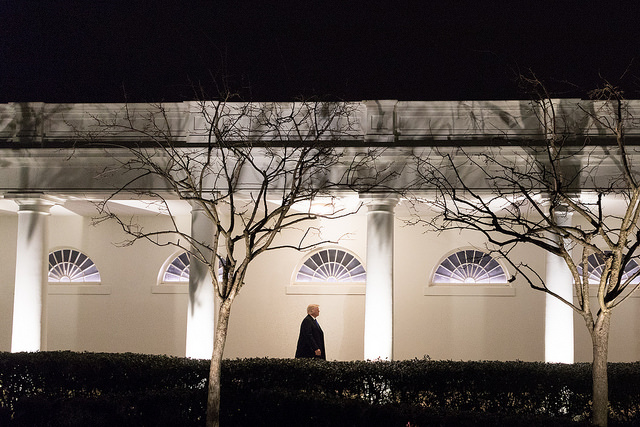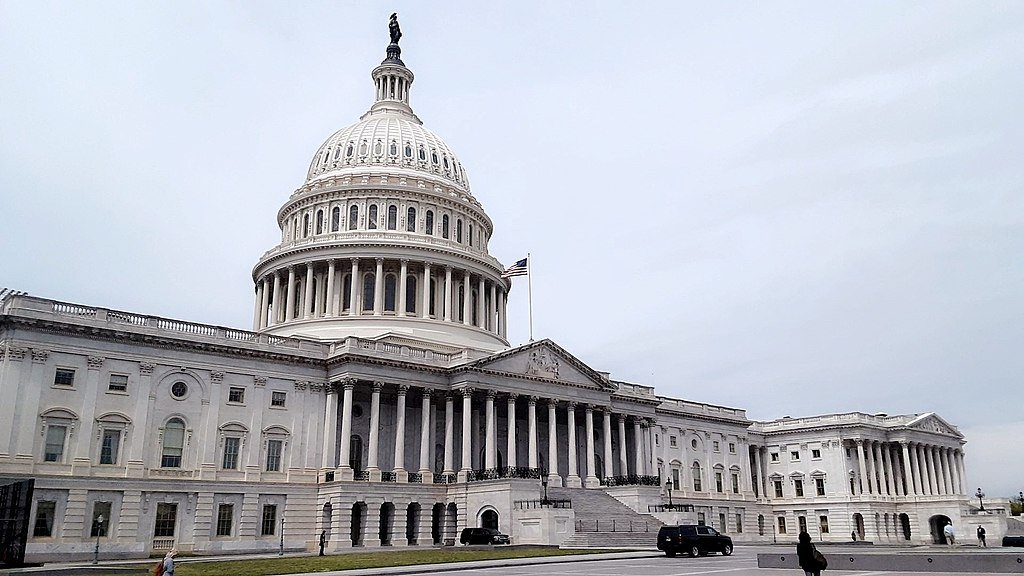The Trump Legal Team’s Remarkable Letter to Mueller
Apart from its primary claim of unreviewable power over criminal investigations, the January 2018 letter from the president's lawyers to Special Counsel Robert Mueller makes a number of remarkable, and sometimes very questionable, assertions.

Published by The Lawfare Institute
in Cooperation With

The New York Times has published two long letters that the president’s lawyers sent to Special Counsel Robert Mueller in January 2018 and June 2017. These letters argue, essentially, that the president can’t obstruct justice. That is because, they say, obstruction of justice “would amount to him obstructing himself” as the nation’s chief law enforcement officer. Indeed, he could “terminate the inquiry, or even exercise his power to pardon” himself at any time “if he so desired.” As president, the letter asserts, Trump was free to fire former FBI Director Jim Comey “at any time and for any reason,” and even today he could “order the termination of [the] investigation”—in which he is a subject—“at any time and for any reason.” In other words, even if the president fired Comey (or Mueller) solely to protect himself from criminal liability, it’s all perfectly legitimate.
These are interesting legal questions. Could the president stop an investigation of himself, if not directly then by firing as many Justice Department officials as it takes until he finds one who will do it for him? Could he self-pardon for “all prior federal crimes,” including things like tax evasion, and continue doing so each morning for the rest of his tenure in office? Law school exam-writers—take note. But the real question is, if he did something like that, would Congress or the American people react? Law enforcement and politics intersect here.
Apart from this primary claim of unreviewable power over criminal investigations, the 2018 letter makes a number of remarkable, and sometimes very questionable, assertions.
First, it argues that the president has already allowed the Special Counsel to have many documents and interview White House staff, and that “[i]n light of these voluntary offerings, your office clearly lacks the requisite need to personally interview the President.” It acknowledges Comey’s accusation that Trump ordered him to drop the investigation of Michael Flynn—“He is a good guy. I hope you can let this go”—but contends that Mueller can’t ask Trump about the conversation because “[t]he White House denied and refuted that the President said these words to Mr. Comey.” There is a heightened standard for interviewing a president. But an interview can’t be avoided merely because other evidence is available and defense lawyers (or “the White House”) have said that they disagree with the accuser’s testimony implicating their client.
Second, even if Trump did order Comey to drop the investigation, the letter says, his defense lawyers have identified a criminal statute, 18 U.S.C. § 1505, that couldn’t have been violated because (they say, as have some courts) it doesn’t apply to FBI investigations. In connection with this legal argument, the letter seems to argue several fallback positions, although they are presented in ways I found a bit hard to follow. Among them are claims that there was no FBI investigation; that if there was an investigation it was closed (or at least was thought to be closed by certain members of the White House staff) by the time the president spoke to Comey about Flynn; that Flynn didn’t lie to the FBI; that Flynn did lie to the White House about various matters (and was fired for it); and that in any event he ultimately pleaded guilty so there could not have been any obstruction. I am not sure how the special counsel will react to all of this, except that he and his team will likely get at least as far as Charlie Savage of the New York Times did in noting that there are several statutes that may have been violated, see, e.g., 18 U.S.C. § 1512, and that obstruction need not succeed to be a crime.
Third, the letter tries to deal with some of the president’s more problematic prior statements on the topic. It begins with Trump’s on-camera statement to Lester Holt that “when I decided to just do it” and fire Comey, “I said to myself ... you know this Russia thing with Trump is a made-up story.” This, the letter argues, was not an admission that Trump fired Comey because of the Russia investigation—“in fact,” the letter asserts, “the President did not ever say such a thing.” Similarly, when Trump reportedly told the Russian ambassador that firing Comey had “taken off” the “great pressure because of Russia,” it doesn’t show he did so “because of the Russia investigation.” The idea, I guess, is that it might just have been a coincidence. Finally, the letter says, although Trump may have helped Donald Trump, Jr. lie about the meeting at Trump Tower in which a purported Russian government official was supposed to provide dirt on Hillary Clinton, that was just “a private matter with the New York Times,” not an interview with the FBI, and therefore not a crime about which he can be questioned. As arguments for Trump’s innocence despite his prior statements, these arguments are strained. As arguments against even asking him about the statements, they strike me as pretty silly.
The final sentences of the letter are perhaps the most meaningful, albeit unintentionally. They say that Trump’s lawyers are prepared to “provide . . . the answers” to the Special Counsel’s questions, apparently instead of having Trump do so himself, in order to help “preserve the dignity of the Office of the President of the United States.” I spent a moment wondering, but in the end I think they didn’t mean this the way it sounds.




